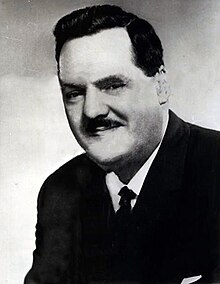| The HonourableGuy FavreauPC QC | |
|---|---|
 Favreau, c. 1966 Favreau, c. 1966 | |
| President of the Privy Council | |
| In office 7 July 1965 – 3 April 1967 | |
| Prime Minister | Lester B. Pearson |
| Preceded by | George McIlraith |
| Succeeded by | Walter L. Gordon |
| Minister of Justice Attorney General of Canada | |
| In office 3 February 1964 – 29 June 1965 | |
| Prime Minister | Lester B. Pearson |
| Preceded by | Lionel Chevrier |
| Succeeded by | George McIlraith (acting) |
| Leader of the Government in the House of Commons | |
| In office 18 February 1964 – 29 October 1964 | |
| Prime Minister | Lester B. Pearson |
| Preceded by | Jack Pickersgill |
| Succeeded by | George McIlraith |
| Minister of Manpower and Immigration | |
| In office 22 April 1963 – 2 February 1964 | |
| Prime Minister | Lester B. Pearson |
| Preceded by | Dick Bell |
| Succeeded by | René Tremblay |
| Member of Parliament for Papineau | |
| In office 8 April 1963 – 3 April 1967 | |
| Preceded by | Adrien Meunier |
| Succeeded by | André Ouellet |
| Personal details | |
| Born | (1917-05-20)20 May 1917 Montreal, Quebec, Canada |
| Died | 11 July 1967(1967-07-11) (aged 50) Montreal, Quebec, Canada |
| Political party | Liberal |
| Spouse |
Francoise
Laflamme (m. 1944) |
| Children | 4 |
| Alma mater | Université de Montréal (BA, LLB) |
| Profession |
|
Guy Favreau PC QC (20 May 1917 – 11 July 1967) was a Canadian lawyer, politician and judge.
Born in Montreal, Quebec, the son of Léopold Favreau and Béatrice Gagnon, he obtained a Bachelor of Arts and an LL.B. from the Université de Montréal. He was called to the Bar of Quebec in 1940. He worked as a lawyer in Montreal from 1942 to 1952. In 1952, he became a member of the Restrictive Trade Practices Commission in Ottawa. In 1955, he became Assistant Deputy Minister of Justice. He helped to create the Faculty of Civil Law at the University of Ottawa and taught there as well. In 1960, he returned to Montreal to work as a private lawyer.
He was elected as a Liberal in the riding of Papineau in the 1963 election, and was re-elected in 1965. He was Minister of Citizenship and Immigration (1963–1964), Minister of Justice and Attorney General of Canada (1964–1965), President of the Privy Council (1965–1967), Minister of Indian Affairs (1963–1964) and Registrar General of Canada (1966–1967). As well, he was Leader of the Government in the House of Commons (1964) and Liberal Party House Leader (1964). Allegations regarding involvement in the prison escape of Lucien Rivard had led to his downfall as Attorney General.
He was appointed a judge of the Quebec Superior Court on April 17, 1967, but he died shortly afterward. He was entombed at the Notre Dame des Neiges Cemetery in Montreal.
The Complexe Guy-Favreau, the federal government's main building in Montreal, was built in 1983 and is named in his honour.
References
- "Man who triggered Pearson scandal dies," Daily Mercury, Guelph, Ontario: February 14, 2002, pg. A.11.
- Répertoire des personnages inhumés au cimetière ayant marqué l'histoire de notre société (in French). Montreal: Notre Dame des Neiges Cemetery.
External links
- Guy Favreau – Parliament of Canada biography
- "Gaining a Place at the Department of Justice: The Birth of the Civil Law Section and Its Development (1952–1986)". Public Works and Government Services Canada. Archived from the original on 23 November 2004. Retrieved 6 June 2005.
| Political offices | ||
|---|---|---|
| Preceded byDick Bell | Minister of Citizenship and Immigration 1963–1964 |
Succeeded byRené Tremblay |
| Preceded byLionel Chevrier | Minister of Justice 1964–1965 |
Succeeded byGeorge McIlraith |
| Preceded byJack Pickersgill | Leader of the Government in the House of Commons 1964 |
Succeeded byGeorge McIlraith |
| Preceded byGeorge McIlraith | President of the Privy Council 1965–1967 |
Succeeded byWalter Gordon |
| Preceded byJudy LaMarsh | Registrar General of Canada 1966–1967 |
Succeeded byJohn Turner |
| Ministers of citizenship and immigration | |
|---|---|
| Ministers of citizenship and immigration (1950–66) | |
| Ministers of citizenship and immigration (1994–2015) | |
| Ministers of immigration, refugees and citizenship (2015–) | |
| The office of Minister of Citizenship and Immigration was abolished and the office of Minister of Manpower and Immigration was proclaimed in force October 1, 1966. | |
- 1917 births
- 1967 deaths
- Judges in Quebec
- Lawyers from Montreal
- Liberal Party of Canada MPs
- Members of the House of Commons of Canada from Quebec
- Members of the King's Privy Council for Canada
- Politicians from Montreal
- Université de Montréal alumni
- 20th-century Canadian lawyers
- Burials at Notre Dame des Neiges Cemetery
- 20th-century members of the House of Commons of Canada